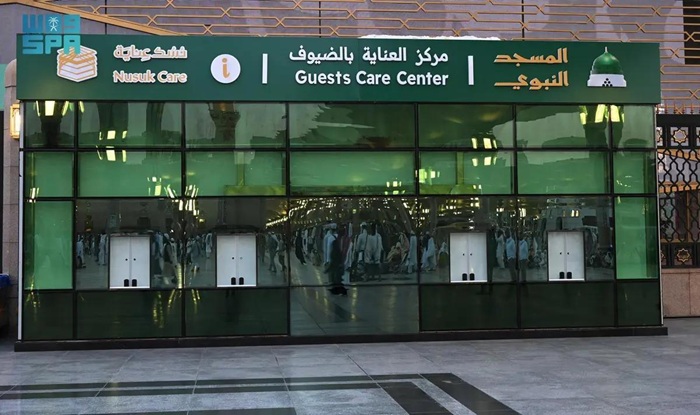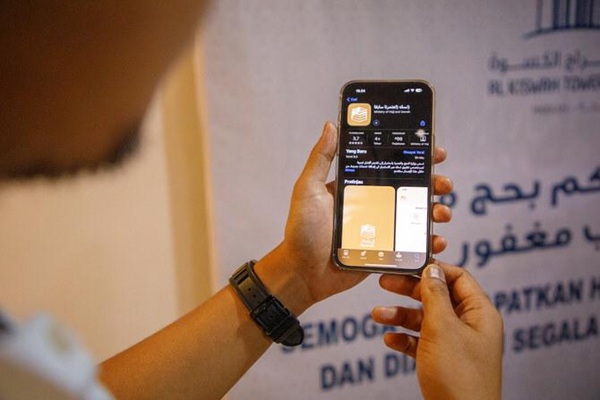
By Khalidh Rizwan
In alignment with Vision 2030, the Kingdom of Saudi Arabia continues its trailblazing digital transformation, marking Hajj 2025 as a milestone in technological innovation and spiritual elevation.
This year’s pilgrimage season has seen an unprecedented integration of advanced digital tools, intelligent infrastructure, and sustainable solutions, all tailored to improve the experience of millions of pilgrims from across the globe.
Among the flagship innovations is the expansion of the “Road to Makkah” initiative, which has simplified immigration procedures for pilgrims from countries such as Pakistan, Indonesia, Malaysia, and beyond. Through this system, pilgrims complete entry formalities at their airports of departure, ensuring a smooth arrival experience in Saudi Arabia.
Complementing this initiative is the “Nusuk” platform, a unified digital ecosystem launched by the Ministry of Hajj and Umrah. With over 120 services, from e-visas and accommodation to real-time guidance, Nusuk provides pilgrims with comprehensive logistical support from the moment they plan their journey.
To ensure the safety and movement of large crowds, the Saudi Data and Artificial Intelligence Authority (SDAIA) has deployed advanced platforms such as “Baseer” and “Sawaher.” These AI-driven systems monitor and analyze pilgrim movement patterns, alert authorities of congestion, and facilitate timely intervention, especially during high-traffic rituals like Tawaf and Sa’i.
Pilgrims also benefit from biometric verification tools like “Banan,” ensuring secure access to services. Additionally, smart bracelets and ID cards connected to the Nusuk system track pilgrims’ locations, assist in emergency situations, and provide guided navigation across sacred sites.
In an impressive blend of heritage and high-tech, the Kingdom has stationed multilingual robotic assistants in Masjid Al-Haram and Mina. These AI-powered robots offer religious guidance, respond to queries in multiple languages, and support differently abled pilgrims, reflecting the inclusive spirit of Islam.
Saudi Arabia has also invested in eco-conscious infrastructure. The Haramain high-speed train connects Jeddah, Mecca, and Medina in under two hours and has ramped up frequency during the Hajj season. Further, the introduction of air taxis and self-driving shuttles at major entry points marks a turning point in future-ready transportation.
Electric buses, solar-powered cooling stations, and biodegradable meal packaging are part of a broader strategy to reduce the environmental impact of the Hajj. These initiatives align with the Kingdom’s Green Initiative, aimed at sustainable urban and ecological development.
Ensuring pilgrims’ health remains a top priority. Mandatory vaccinations, health screening at arrival hubs, and the deployment of field hospitals have helped mitigate public health risks. In a groundbreaking step, telemedicine robots now operate in key locations, allowing instant consultations and reducing stress on physical facilities.
AI monitoring tools are also tracking health indicators and identifying potential outbreaks, creating a responsive and resilient healthcare system during the intense Hajj period.
Beyond logistics, the Kingdom has revitalized more than 40 historical Islamic sites and launched interactive museums to provide pilgrims with deeper insight into Islamic heritage. Programs under the Pilgrim Experience Program invite visitors to immerse themselves in the historical and cultural context of the rituals they perform.
With these technological advancements and human-centered policies, Hajj 2025 stands as a testament to Saudi Arabia’s commitment to enriching the pilgrim journey physically, logistically, and spiritually.
As His Excellency Tawfiq Al-Rabiah, Minister of Hajj and Umrah, remarked, “We are not only hosting guests of God; we are enhancing their experience through compassion, efficiency, and innovation. This is the future of Hajj inclusive, safe, and spiritually profound.”

